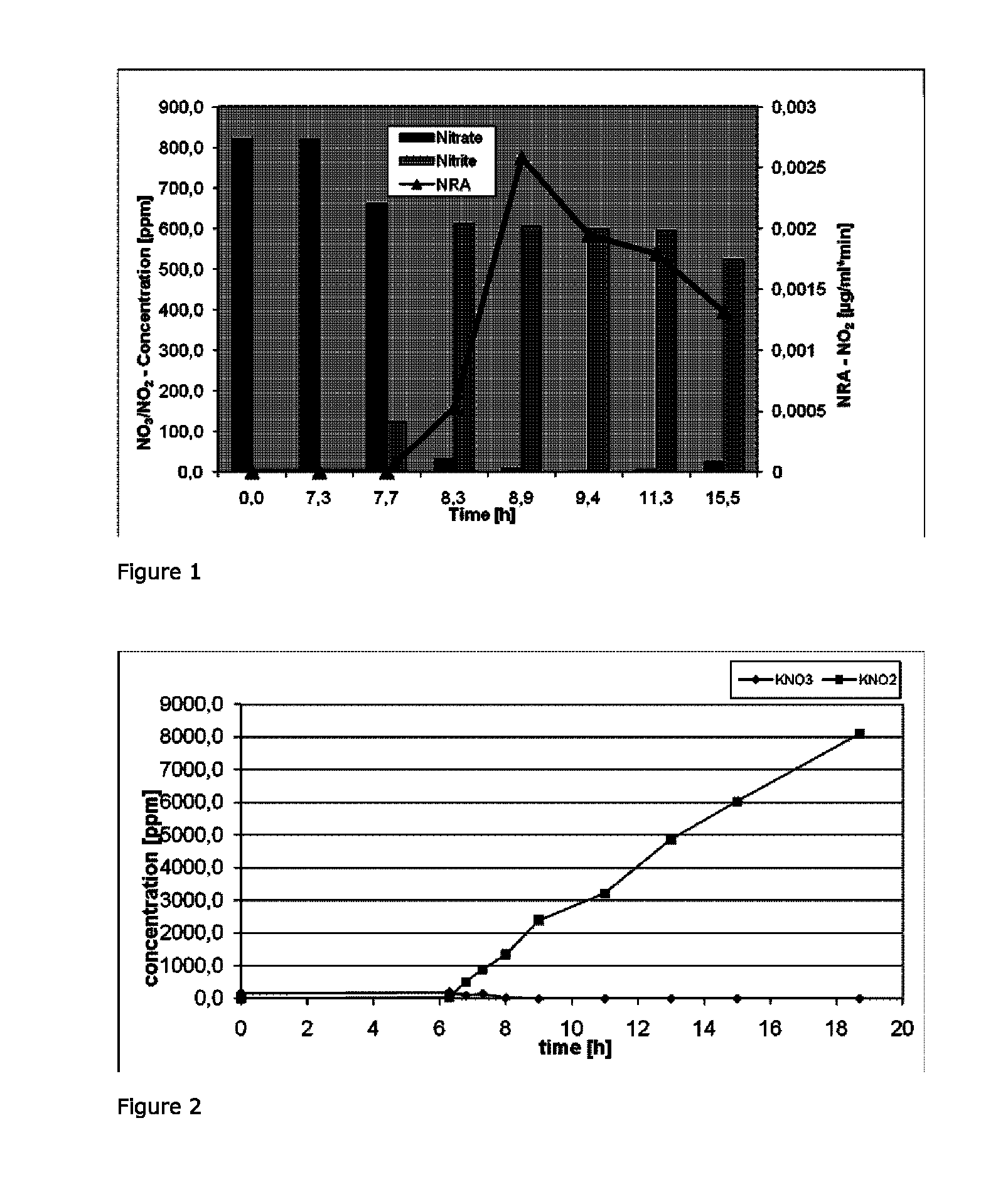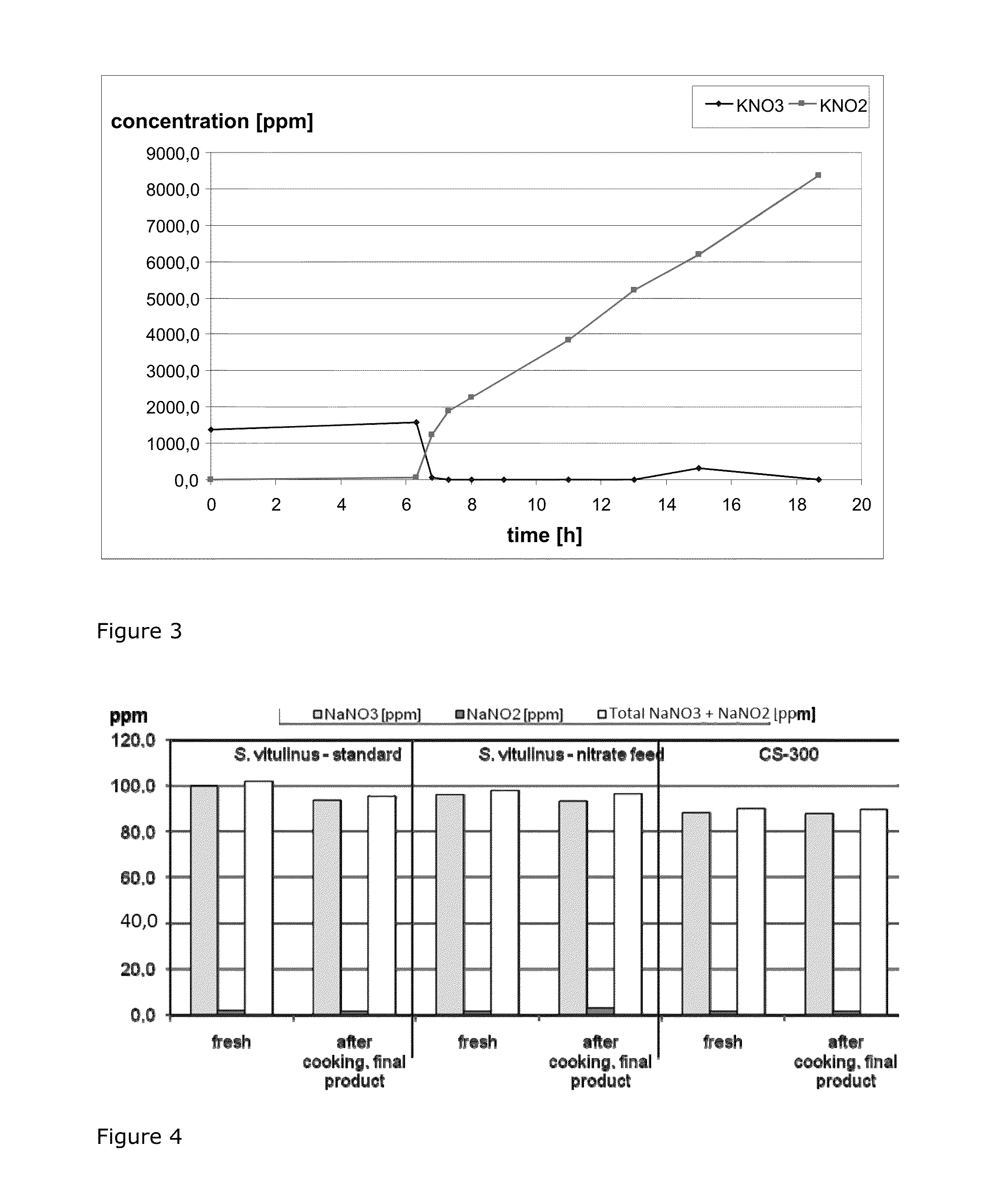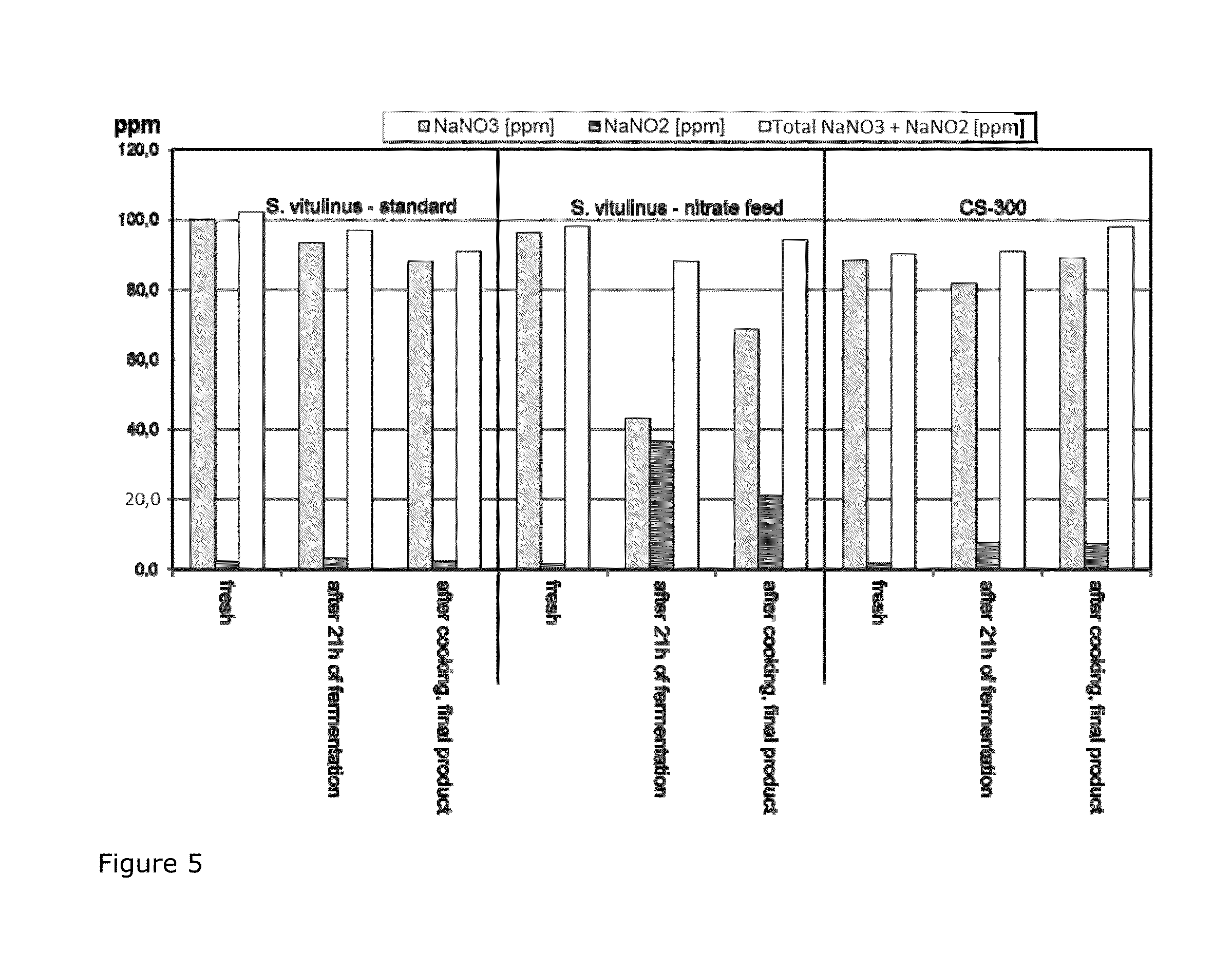Two-phase fermentation of Staphylococcus increases nitrate reductase activity
a technology of nitrate reductase and two-phase fermentation, which is applied in the field of reddening food products, can solve the problems of reducing affecting the safety of nitrite to human health, and forming unwanted compounds in cured meat, so as to increase the activity of nitrate reductase and improve the effect of reddening
- Summary
- Abstract
- Description
- Claims
- Application Information
AI Technical Summary
Benefits of technology
Problems solved by technology
Method used
Image
Examples
example 1
Standard Fermentation Procedure for Staphylococcus Species
Experimental:
[0129]The fermentations were carried out in a modified version of the standard glycerol medium which is used for Staphylococcus carnosus MIII. The content of glycerol is reduced compared to the standard medium used for Staphylococcus carnosus MIII to ensure a sufficient supply with oxygen.
Fermentation Medium:
[0130]
weightObject description%(g)Water91.2010944.00Antifoam-oil Erol DF 204K0.2024.00Potassium nitrate0.1012.00Yeast Extract - HyYest 412 (Sheffield Bioscience)5.00600.00Glycerol 99.5%3.50420.00SUM100.0012000.00
[0131]Fermentation medium was prepared and the pH was adjusted to 7.2 prior to sterilization by autoclaving at 121° C. for 20 min. pH was adjusted to 7.2 and Staphylococcus vitulinus strain CHCC10896 was inoculated at 0.1% (approx. 2.6×107.
[0132]Fermentation was carried out at 37° C. with 500 rpm agitation and an air flow of 0.5 (6 L / min) for 15.5 hours.
[0133]Samples were taken during the whole fermen...
example 2
Adaptation of Standard Fermentation Procedure to a 2-Step Process
[0136]The adapted fermentation procedure for optimizing the NRA of Staphylococcus vitulinus strain CHCC10896 can be divided into two phases. The purpose of the first phase is the development of biomass while the strain is aerated sufficiently whereas the second phase is for conditioning to optimize / increase the NRA by reducing aeration and feeding with continuous pulses of nitrate until the end of fermentation. In total two fermentations were carried out by applying the above roughly described process. The fermentations were carried out in a modified version of the standard glycerol medium which is used for Staphylococcus carnosus MIII. The content of glycerol is reduced compared to the standard medium used for Staphylococcus carnosus MIII to ensure a sufficient supply with oxygen during the first, aerated fermentation phase. In total 4 fermentations were carried out, 2 by leaving out nitrate which is used by default i...
example 3
Mortadella Type Sausage Application Trial
[0145]To test the effect of the newly developed 2-phase fermentation procedure in an application test, 2 different fermentations were carried out; one fermentation of Staphylococcus vitulinus strain CHCC10896 following the standard fermentation and one fermentation following a 2-phase procedure as described above.
[0146]The cells of both fermentations were harvested and freeze-dried by adding a cryo additive. Both batches were used in an application context by producing 3 batches of emulsified sausages, 1 batch with Staphylococcus vitulinus fermented by the standard procedure, 1 batch with Staphylococcus vitulinus fermented by a 2-phase fermentation with nitrate feeding in the second phase and 1 batch with the commercial culture Bactoferm® CS-300 (Chr. Hansen, Denmark) composed of 2 carnosus strains which served as a control.
Experimental
Cell Count Determination of Freeze-Dried Granulate.
[0147]The cell count determination was carried out by flo...
PUM
 Login to View More
Login to View More Abstract
Description
Claims
Application Information
 Login to View More
Login to View More - R&D
- Intellectual Property
- Life Sciences
- Materials
- Tech Scout
- Unparalleled Data Quality
- Higher Quality Content
- 60% Fewer Hallucinations
Browse by: Latest US Patents, China's latest patents, Technical Efficacy Thesaurus, Application Domain, Technology Topic, Popular Technical Reports.
© 2025 PatSnap. All rights reserved.Legal|Privacy policy|Modern Slavery Act Transparency Statement|Sitemap|About US| Contact US: help@patsnap.com



